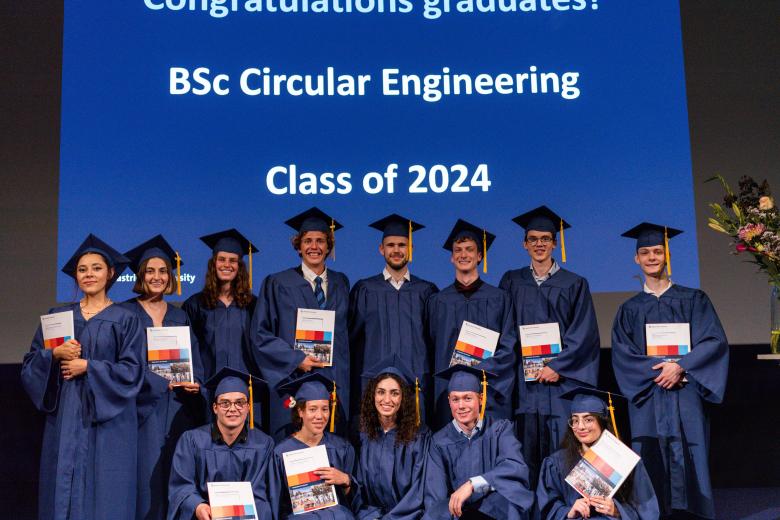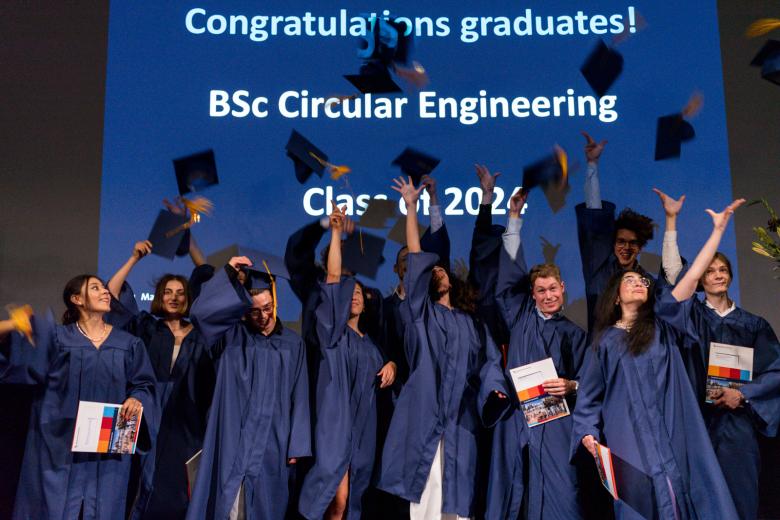Pioneers and guinea pigs
"We are the pioneers in a brand-new field of engineering sciences, not just in Maastricht but globally as well", says Francesco Ferrari about the group of thirteen students, himself included, who on July 5 received the first bachelor's degree in Circular Engineering.
"It's true that when I came here three years ago, I had no idea that I was a member of the very first class of Circular Engineering," states Ferrari, who is wearing a gown and typical graduation cap. "I was intrigued by what I read on the Maastricht University website when I was searching for an academic programme in the fields of sustainability and technology. My goal is to work as an engineer in the sustainable and circular economy. I was able to realise that goal in Maastricht."
Necessity
Circular Engineering started out of pure necessity for companies at the nearby Chemelot industrial site and elsewhere. Working circularly, where raw materials and products have less of an impact on our environment, can help them meet their task of making their products and manufacturing more environmentally friendly. However, this calls for engineers who understand circularity and the related disciplines.
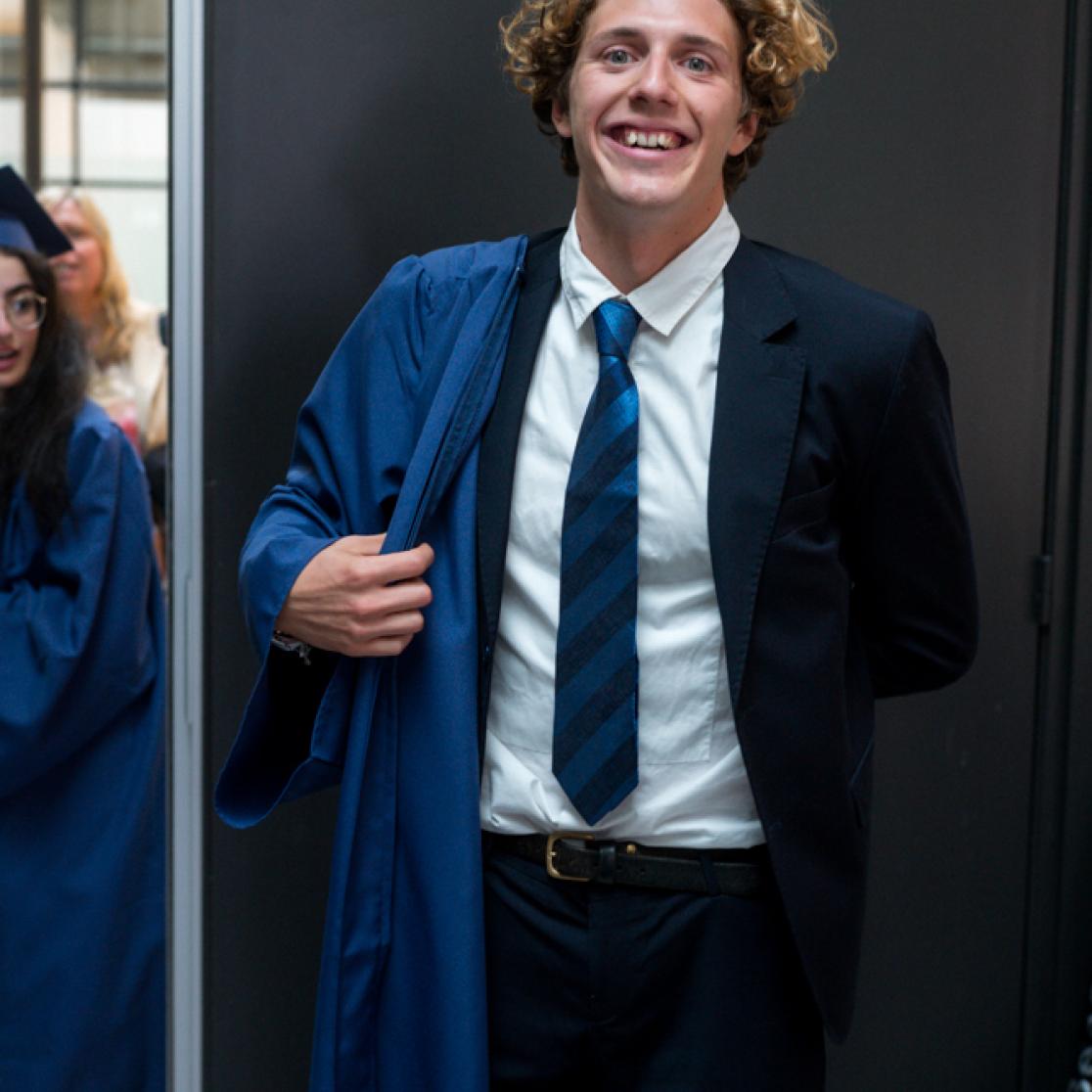
You are not only pioneers but also heroes who are so determined to improve the world that you came to Maastricht from all over the world to take this new programme.
Kim Ragaert, professor of circular plastics at the Faculty of Science and EngineeringArnold Stokking, head of Brightsite, an expertise centre for the chemical industry transition, is among the people who started the programme. "The transition is about the production of everything we use, and producers can only become truly green if their raw materials are green," he says to the students during the graduation ceremony. For several of these raw materials, carbon is the primary component. While we currently obtain our carbon from fossil sources, in the future we will also need to obtain it from other sources, such as carbon from biomass, recycled materials, or the atmosphere (CO2). The answers will come from you, the students. You can see the big picture and determine the best paths to a solution because of the systems-thinking skills you acquired. That is the very feature that sets Circular Engineering apart from comparable programmes offered by other universities.”
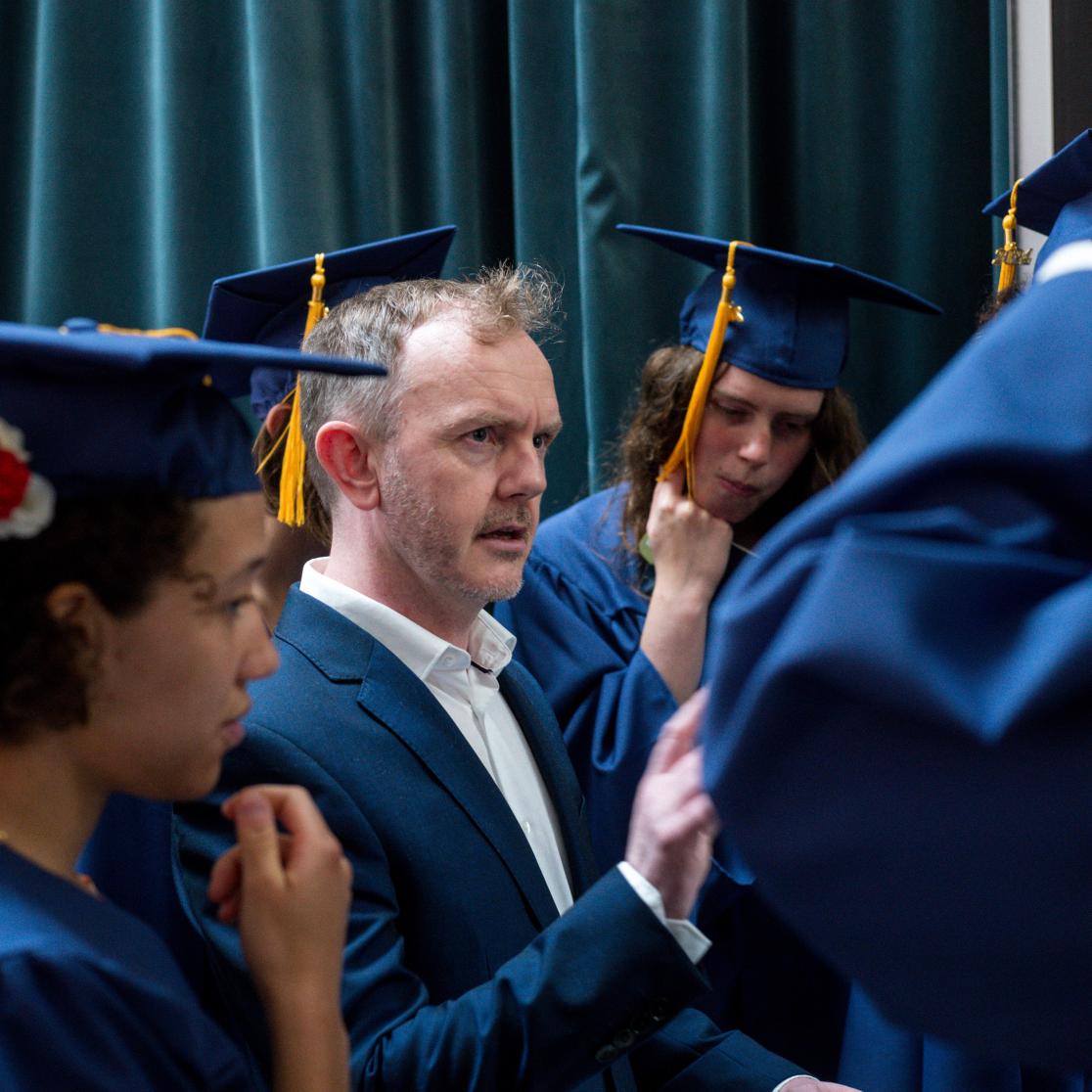
Masters
"We are likely to apply the concepts of circular production in our future work because we were born and raised with circularity," says recent graduate Teun van Rossum. His fellow graduate, Thijs Vogely, agrees. Both are content with their decision to choose a career in circular engineering and intend to pursue a master's in mechanical engineering at Delft University.
Even with all the encouraging signs, Rossum and Vogely believe there is still room for improvement. Vogely: "With topics like numerical analyses, the share of technology could be increased." Programme director Gavin Phillips responds, "We have strengthened the training in that area as we saw the need to do so." Just like the students, we did everything for the first time. As a group, we learned from these experiences together.”
Goals
Phillips is happy when he looks back at the start of the programme. “It is great to see that the first cohort of students is successful. They achieved the goals they set for themselves and went where they wanted to go. When they started three years ago, they had a general feeling that they wanted to contribute to the transition towards a circular economy. Now, their ideas are far more concrete.”
Phillips has an important wish for the future: “One of the most significant goals is to raise awareness of Circular Engineering amongst Dutch high school students. I want them to know that we exist so they can make a better choice when looking for a bachelor programme like Circular Engineering."
Although the first group of Circular Engineers to graduate is made up of pioneers, Phillips cannot help teasing them: "Thanks for being our guinea pigs."
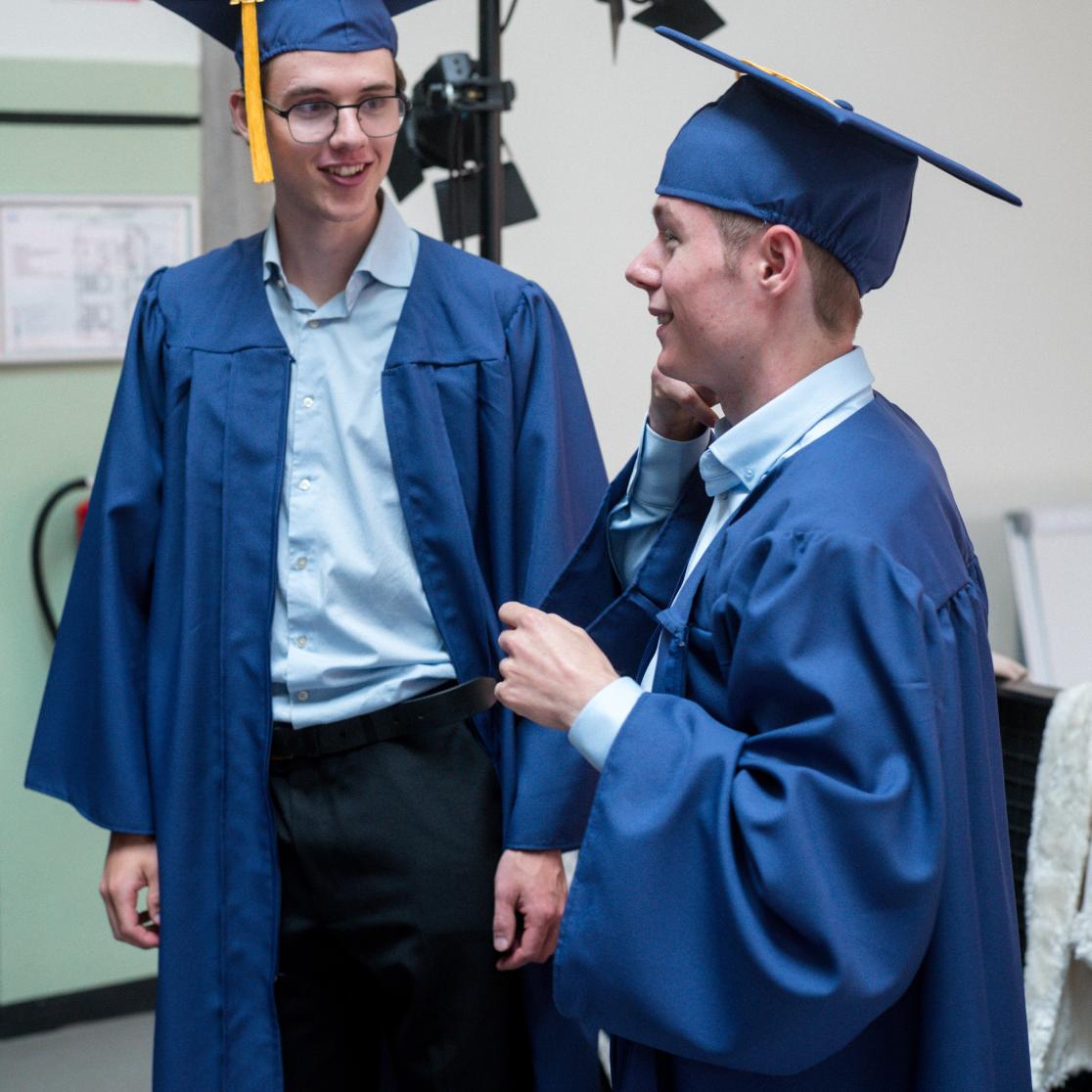
Also read
-
A strong education network for Brabant and Limburg: better alignment, less dropout
On November 24, 2025, secondary schools (VO) and higher education institutions (HO) in Brabant and Limburg will sign up for the Education Network South Netherlands: one VO-HO network that will improve the flow of students to further education and reduce dropout rates.
-
AMIBM hosts the final Realise-Bio conference
The Aachen Maastricht Institute of Biobased Materials (AMIBM ) hosted last week the third and final Realise-Bio annual conference , bringing together the Dutch and German bioeconomy ecosystems at the Brightlands Chemelot Campus .
-
Teacher Information Points at UM
UM faculties now host Teacher Information Points (TIPs) that offer local, “just-in-time” and on-demand support for teaching staff. The aim is simple: to provide help that is closely connected to day-to-day teaching practice.
